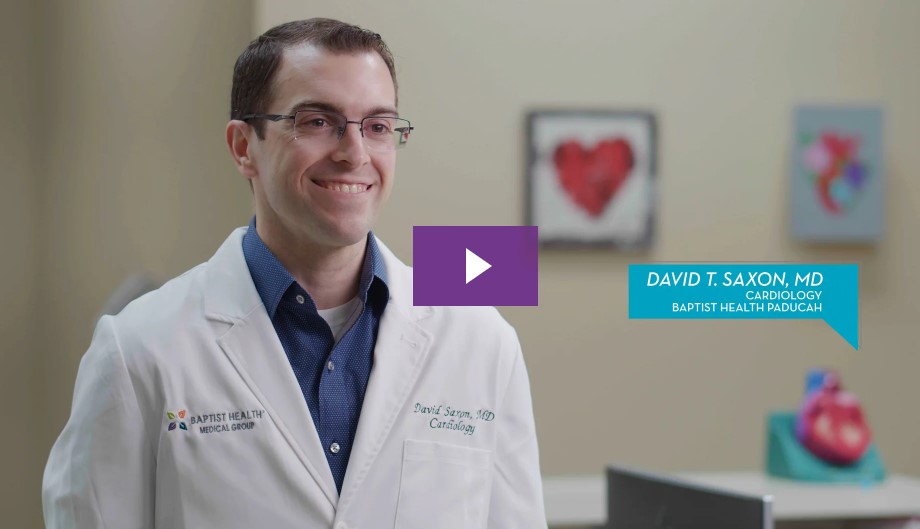New Tests to Diagnose Heart Failure at Baptist Health La Grange
Learn about the new technologies that Baptist Health La Grange uses for the early detection of heart failure. Watch this video to learn more about heart failure screening from Baptist Health.
New Tests to Diagnose Heart Failure HealthTalks Transcript
Jesse Adams, MD
Heart failure is where the heart fails to do its job. The heart’s job is basically to pump blood out of the lungs out to the body, and if that fails to happen, that’s what heart failure is. We can diagnose heart failure in a variety of ways. We can pick up this by physical exam — there are a number of things we can find when we examine somebody. Certainly, when we’re talking to them, we can pick that up, and we have a number of different tests we can use to help define what’s going on with the heart.
One of the new technologies that we have in echo [echocardiography], and it is available in La Grange, is something called strain imaging. This is a very sophisticated technique where we’re doing echo pictures, but we’re actually tracking how the heart muscle is contracting and then relaxing. It’s a much more sophisticated way to really be able to tell what’s going on with the heart muscle itself. That can help us to do a better job, both identifying people with heart failure, and then to identify the best treatment for them.
It used to be that if somebody was diagnosed with heart failure, it could be a fairly dire diagnosis. These days, we have a lot that we can offer, both in terms of better diagnostics to tell what’s going in the first place, lots of different medicines that we can use that can help. There are also some interventional techniques that we have to help the heart. All of these put together means that most of the time, we can significantly improve someone if they’re having heart failure symptoms.
Have you ever wondered how healthy your heart is? This quick heart health risk assessment can compare your actual age to your heart’s biological age, as well as calculate your risk of developing cardiovascular disease.



